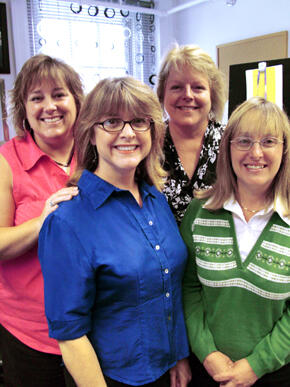July 10, 2009
Professors developing arts-based electronic learning and assessment tool in Qatar
Share this story

The schools of the Arts and Education at Virginia Commonwealth University, Qatar University and the VCU School of the Arts at Qatar have been awarded a $1.05 million grant from the Qatar National Research Fund to research the development of an arts-based electronic learning and assessment tool.
The tool, which is known as eLASTIC (Electronic Learning and Assessment Tool for Interdisciplinary Connections), will target 11th grade students’ academic achievement and skill improvement in visual arts, reading and writing. Research from the three-year grant, which will be conducted in Qatar with students and teachers, will inform the development of eLASTIC.
Pamela Taylor, Ph.D., associate professor and chair of the Department of Art Education at VCU, conceived of the eLASTIC idea five years ago, hoping to create an interactive way for students to organize their learning materials electronically while commenting, creating relevant links and adding information and material beyond what their teachers expect.
Taylor, principal investigator in the research, is joined on the eLASTIC project by co-principal investigators Joan Rhodes, Ph.D., assistant professor in the School of Education at VCU; Frances Smith, ED.S., coordinator of technology and distance learning at the Virginia Department of Education Training and Technical Assistance Center and a collateral faculty member of the School of Education at VCU; Jan Johnston, an adjunct instructor in art education at VCU; and Elnour Hamad, Ph.D., assistant professor of art education at Qatar University.
Investigators will use interviews, focus groups, observations, experimentation and application in the research process to determine the design of an electronic assessment tool that obtains and analyzes data for evaluating progress and contributes to students’ academic achievement.
The four approaches the tool will offer include:
(1) In addition to required activities that teachers and administrators include in the software, students may add ideas, projects and writing that they feel is relevant to their study and learning -- and thereby be more responsible for their learning.
(2) Students can make links and associations to make study relevant in unexpected ways.
(3) Each year spaces within the program will be archived and available for students to connect new material and ideas with their study from previous years.
(4) Data mining capabilities will be incorporated in the software so that progress can be evaluated and reported for students, classes, programs, schools and districts, ultimately replacing the need for standardized tests.
Subscribe to VCU News
Subscribe to VCU News at newsletter.vcu.edu and receive a selection of stories, videos, photos, news clips and event listings in your inbox.









